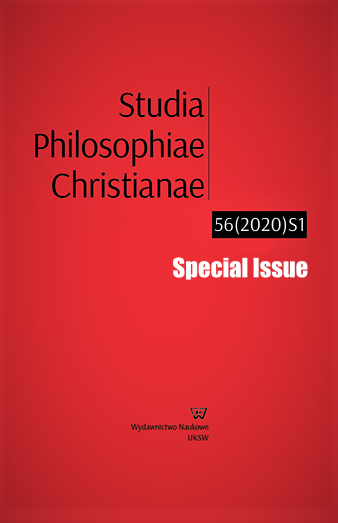DIDACTICS OF LOGIC IN KEN SCHOOLS AND THE CONCEPTION OF LOGIC IN THE ENCYCLOPÉDIE OU DICTIONNAIRE UNIVERSEL RAISONNÉ
DIDACTICS OF LOGIC IN KEN SCHOOLS AND THE CONCEPTION OF LOGIC IN THE ENCYCLOPÉDIE OU DICTIONNAIRE UNIVERSEL RAISONNÉ
Author(s): Stanisław JaneczekSubject(s): Logic, Early Modern Philosophy, 18th Century
Published by: Wydawnictwo Naukowe Uniwersytetu Kardynała Stefana Wyszyńskiego w Warszawie
Keywords: logic; Great French Encyclopedia; Condillac; d’Alembert;
Summary/Abstract: The paper describes the conception of logic in Polish didactics authored by the Commission of National Education (KEN), an important educational institution of the European Enlightenment. Since the documents of the Commission refer to a vision of science presented by such influential works then as the Encyclopédie ou dictionnaire universel raisonné [Great French Encyclopedia], the paper compares the requirements from the Commission’s programmer with the encyclopaedic entries that entail logical problems broadly understood. It turns out that the Commission, following the Encyclopédie, not only recommended a list of textbooks of logic but also shared its eclectic vision of logic. Although it is characteristic of modernity to take a relative approach to the importance of traditional logic, transformed into science on method, or literally an outline of epistemology, understood according to É. Condillac as a specific form of metaphysics, nevertheless some elements of logic were eclectically made valid. This logic, from the times of I. Kant, has been defined as formal logic. Practical logical skills were preferred to the knowledge of logical theories. At the same time attention was paid to the meaning of natural logical skills, and drills in logical reasoning when studying languages and mathematics. Despite preferences for the analytical method they also noticed the importance of synthetic method. It seems also that although the documents of the Commission do not say anything about the teaching of syllogistic issues, in didactic practice inspired by the Encyclopédie in the schools controlled by the Commission, the room was made to teach these problems. Condillac’s book was preferred in the schools controlled by the Commission, nevertheless, it was not, as in the case of other textbooks, a must on the reading list, an obligatory reading matter, therefore it was not published in Poland. The conception of logic presented by the Commission as modelled on the Encyclopédie managed to avoid the one-sidedness of Condillac’s approach, the approach that in fact eliminated the teaching of logic.
Journal: Studia Philosophiae Christianae
- Issue Year: 56/2020
- Issue No: S1
- Page Range: 43-64
- Page Count: 22
- Language: English

